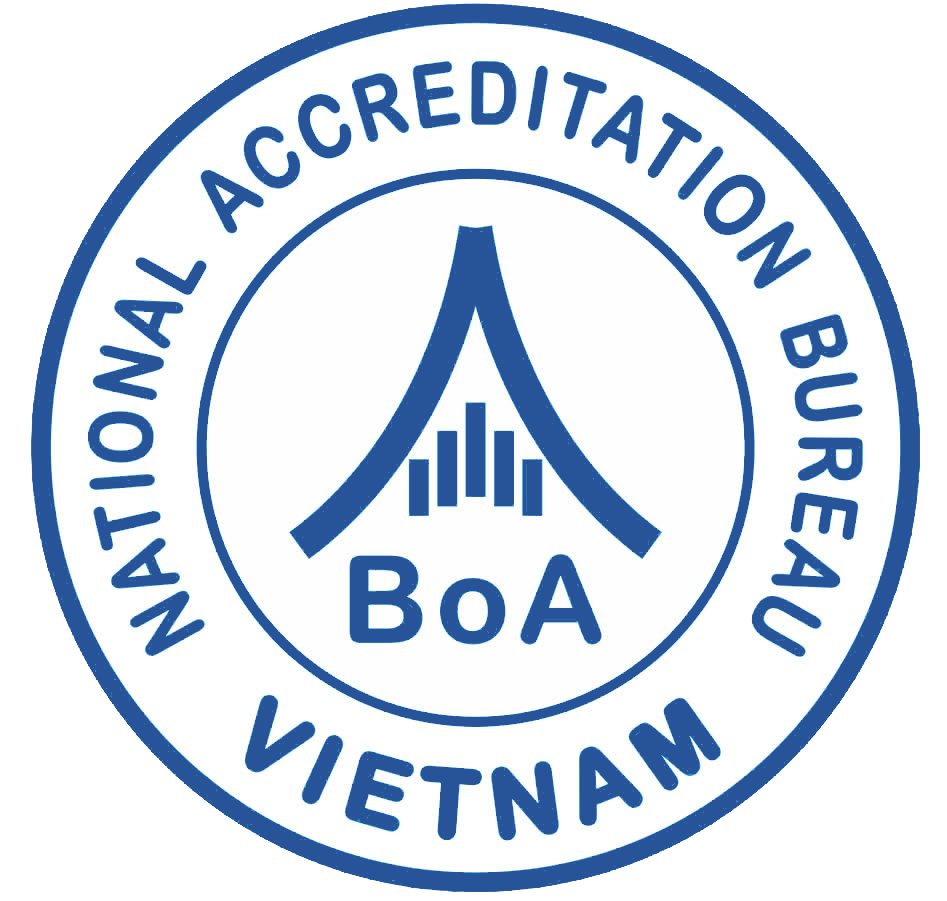VIAS
Viet nam Inspection Accreditation Scheme (VIAS)

The Viet nam Inspection Accreditation Scheme (VIAS) started in 2000. It is one of the accreditation schemes of the National Accreditation Bureau (BoA). The scheme is organized and operated in accordance with ISO/IEC 17011 standard.
In 2004, VIAS signed a Mutual Recognition Agreement (MRA) concerning the accreditation of inspection bodies with the Asia Pacific Laboratory Accreditation Cooperation (APLAC), and simultaneously signed a Mutual Recognition Agreement (MRA) with the International Laboratory Accreditation Cooperation (ILAC).
VIAS has a pool of professional assessors according to international standards. The VIAS lead assessors are personnel with many years of experience in quality management. VIAS technical assessors are highly qualified, knowledgeable and specialized in specialized technical fields, selected from specialized regulatory authorities, universities, research institutes and inspection bodies.
The scope of accreditation for inspection activities by VIAS meets both domestic and international needs, as well as those of authorized regulators regarding product and goods quality management, safety, environmental protection and customs clearance services.
Benefits of Accreditation
- Enhances the management and technical capacity of the inspection bodies.
- Helps regulatory authorities, partners and customers provide inspection services formally providers , ensuring objectivity and reliability, thereby minimizing risks during inspection activities.
- Promotes the integration of Vietnam's inspection activities with countries in the regional and international, creating favorable conditions for international trade.
- Create conditions for inspection bodies to expand their operating markets.
- Help businesses and consumers have more confidence in the quality of products and services.
- Create competitive advantages for inspection bodies when participating in bidding or signing contracts.
- Contribute to building a professional and trustworthy image for the inspection body.
- Build trust and customer satisfaction towards the inspection bodies.
Target Clients
Inspection bodies operating in fIelds such as construction, industry, agriculture, food, environment, consumer goods and other fields. These organization require assessment and accreditation their competence according to ISO/IEC 17020 standard.
Accreditation Criteria
VIAS uses the international standard ISO/IEC 17020 “Conformity assessment – Requirements for the performance of inspection bodies” and ILAC requirements.
Scope of recognition
According to product, process, type of inspection.
FAQs
Accreditation may be required by government or federal regulatory bodies, industry organizations, local government requirements, or individual customers.
What is the process to be accredited according to ISO/IEC 17011:2017?
Refer to "How to get accredited?" The key technical factors mentioned in the standard include:
- Validity and suitability of the method
- Technical competence of personnel
- Traceability of measurements to national and international standards
- Suitability, calibration, and maintenance of equipment
- Handling of testing/calibration items
- Quality control and assurance processes
- Reporting of results
The BOA (BAC) Accreditation Criteria packages include several documents available for download.
BOA's general documents include informational materials and do not serve as accreditation criteria.
There are General Accreditation Criteria applicable to all facilities and Specific Accreditation Criteria designed for specific fields and industry activities. These documents outline the mandatory accreditation criteria that must be met.
- General accreditation criteria
- Specific accreditation criteria
The General Accreditation Guidelines and Specific Accreditation Guidelines provide non-mandatory recommendations.
- General accreditation guidelines
- Specific accreditation guidelines
ISO/IEC 17011:2017 is the international standard that outlines the requirements for accreditation bodies assessing and recognizing conformity assessment bodies (CABs). This standard specifies the criteria for accreditation bodies to operate in a consistent, impartial, and transparent manner. It ensures that CABs—such as testing laboratories, certification bodies, and inspection bodies—are competent and produce reliable results.
